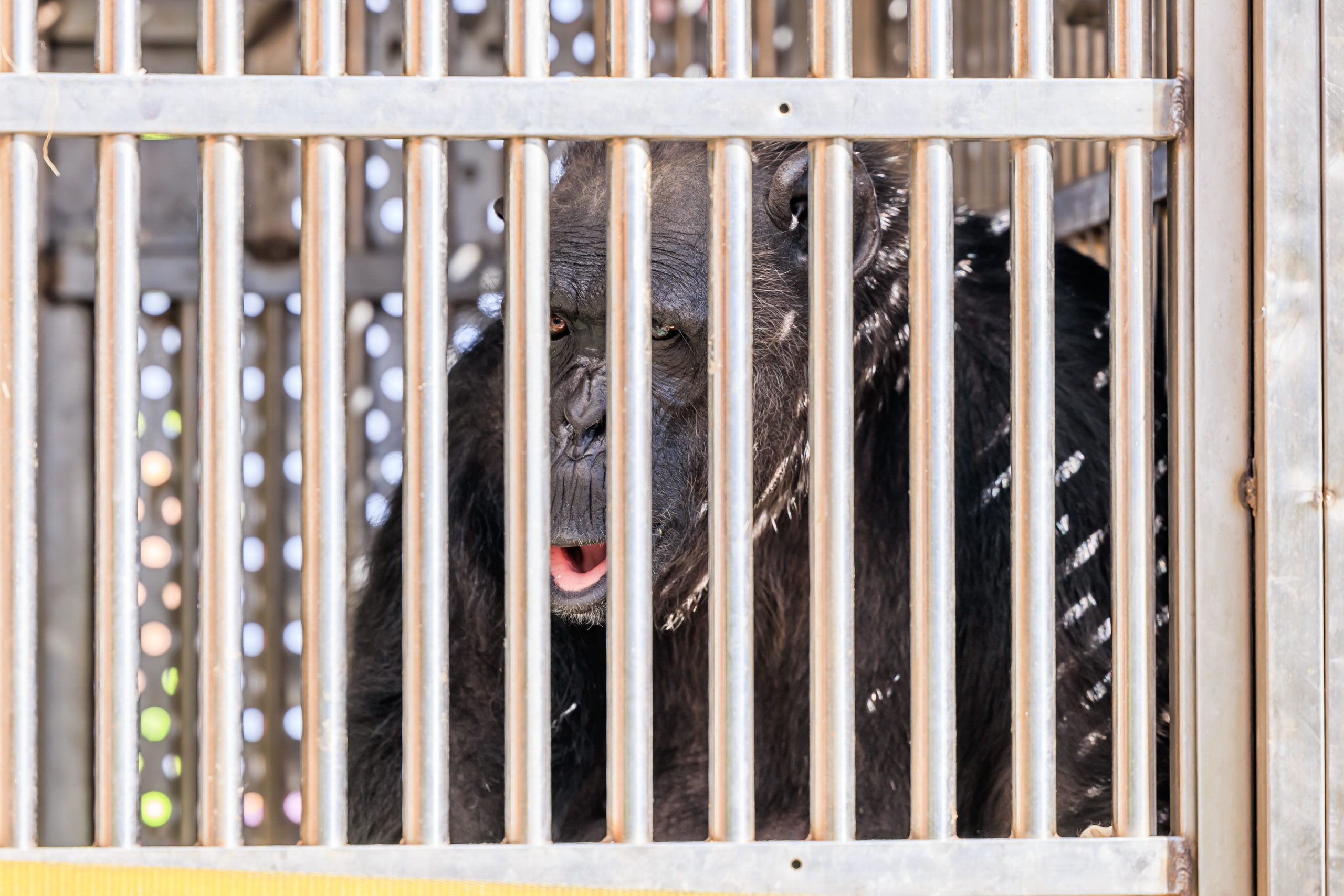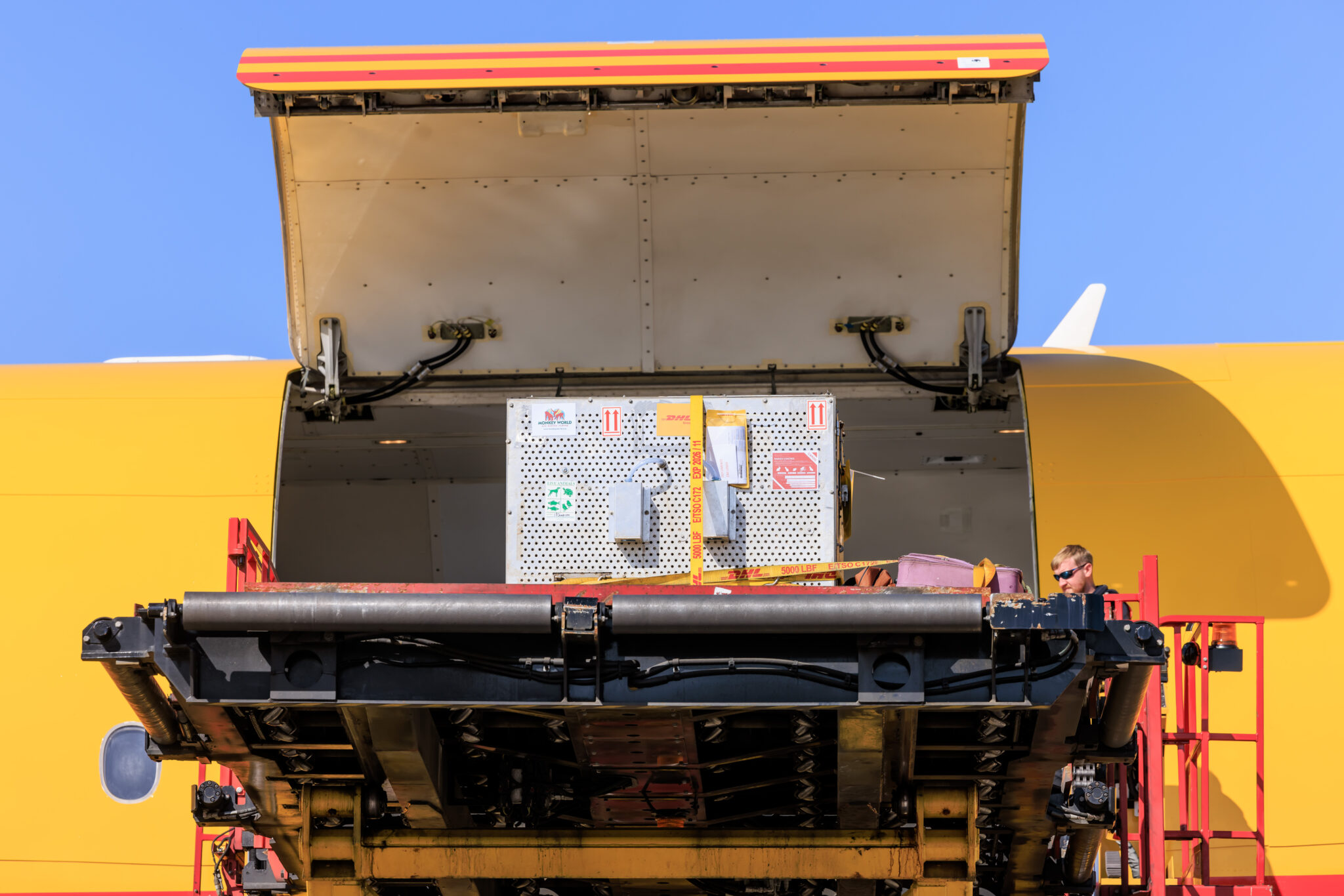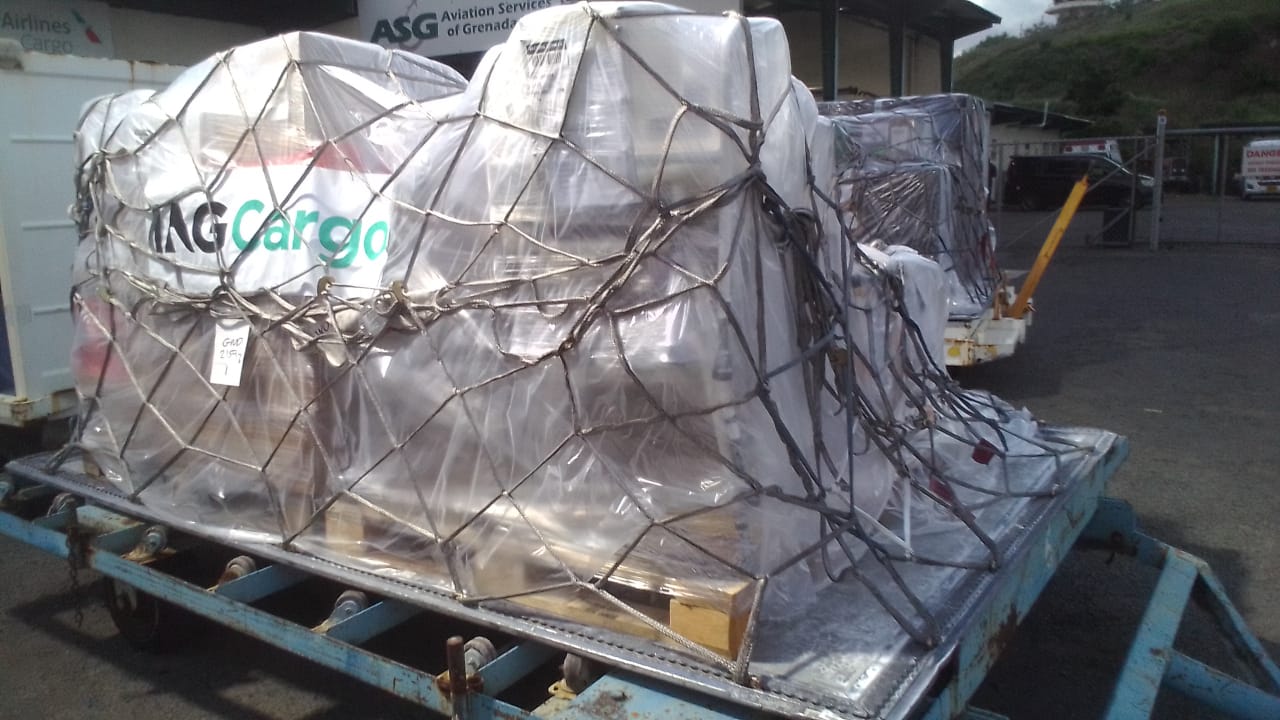DHL Express and Monkey World announced today that they have successfully relocated Chocolat, a female chimpanzee and orphan of the illegal bushmeat trade in the Republic of Congo, to her new long-term home in Monkey World – Ape Rescue Centre, Dorset, UK.
Chocolat’s Rescue from Meat Trade
Chocolat was an infant when her family were hunted and killed. When she was rescued, she was found to have injuries from shotgun pellets that have left her with a paralysed hand and foot on her right side. After spending the past twenty years in Kenya being looked after by her original rescuer, Chocolat has now found a long-term home at Monkey World, which provides specialist care for chimpanzees that have been smuggled from the wild and/or suffered abuse or neglect. To accommodate her needs, her new enclosure has been treated to upgrades such as lower platforms, new nesting areas, and cargo nets, all designed to make Chocolat’s new home as accessible as possible.
Monkey World was established in 1987 to provide a home for chimpanzees who were being abused in the Spanish beach photography trade. Since then, it has continued to rescue monkeys, apes and prosimians who have been used or abused by humans. It has assisted 29 governments to confiscate and rehome the victims of the legal and illegal trade in primates. The 65 acre sanctuary in Dorset is now home to over 230 primates of 25 different species. Chocolat joins 51 other chimpanzees, over 4 groups, living in as natural conditions as possible.
Chocolat’s Journey to the UK
Throughout the journey DHL Express provided Chocolat with VIP service, transporting her in a custom-built crate supported by a team of specialist keepers, aircraft engineers, cargo handlers, security personnel, and pilots. Throughout the trip Chocolat snacked on fresh fruit, nuts and sweet potato.
Her journey, which was carefully planned to reduce the amount of time she spent in transit, began at Nairobi Airport on August 15th, included a brief stop in Bahrain, and concluded with a seven-hour flight to East Midlands Airport, where she arrived on the morning of August 16th. From there, she was transported by road to her new home at Monkey World.

Her New Home
At her new home Chocolat is being gradually introduced to six other chimpanzees who will become her adopted family. Monkey World is home to chimpanzees rescued from 16 different countries. Chocolat’s new family were rescued from Mexico, Argentina, Cyprus, and Thailand, and also have various disabilities as a result of their tragic backgrounds. She has already made friendly contact with Bryan, the dominant male in her group, reaching out to him and for the first time in over 20 years, touching a fellow chimp. She is getting used to a diet with a larger variety of vegetables than she has been accustomed to. As she learns how to be a chimp again, Chocolat is expected to live out the rest of her days in peace at Monkey World. Chimps like Chocolat have an average life expectancy of 50 years.
Those Who have Helped
Other organisations who have supported and assisted Chocolat’s transfer are African Apes and the William Holden Wildlife Foundation, founded by actress Stefanie Powers in honour of her lifelong love William Holden.
Stefanie Powers, founder of William Holden Wildlife Foundation, said “In my avocation as a wildlife conservationist, I am concerned about the illegal trafficking of primates which continues unabated. It is only through the extraordinary efforts of individuals such as Alison Cronin and her Monkey World team that our fellow primates may be rescued and rehabilitated. We are only a fraction of DNA removed from all our primate brothers and sisters and it is a privilege to play a small part in helping to preserve and protect them. Thanks to the outstanding generosity and support from DHL one very special chimpanzee called Chocolat will have a chance at a fulfilling life. As a friend of Chocolat I am grateful to DHL and Monkey World.”
Dr Alison Cronin MBE, Director at Monkey World, said “We’re so happy to welcome Chocolat. The reason we exist is to offer a nurturing environment for chimpanzees and other primates and to give them back a fraction of what has been taken from them by humans, providing them with a family again. Companionship of their own kind is vital to chimpanzees’ wellbeing, as they are social, intelligent animals. Living in family groups in as natural an environment as possible is the best kind of rehabilitation we can provide to chimpanzees like Chocolat. Her integration will be gradual, but her journey has been very smooth, thanks to the support of DHL and so far, she is settling in well.”
Cain Moodie, EVP Network Operations for DHL Express in Europe, said, “It has been an honour to help Chocolat, the chimp, relocate to her new home at Monkey World. The logistics of transporting her were quite challenging, but our team of experts, in collaboration with Monkey World and her carers in Kenya, took every possible measure to ensure her journey was safe and comfortable. It’s a real pleasure for everyone at DHL when we can use our skills and network to contribute to projects such as this.”
Read Similar…
Delivering Hope: IAG Cargo Delivers Aid to Grenada After Hurricane Beryl














